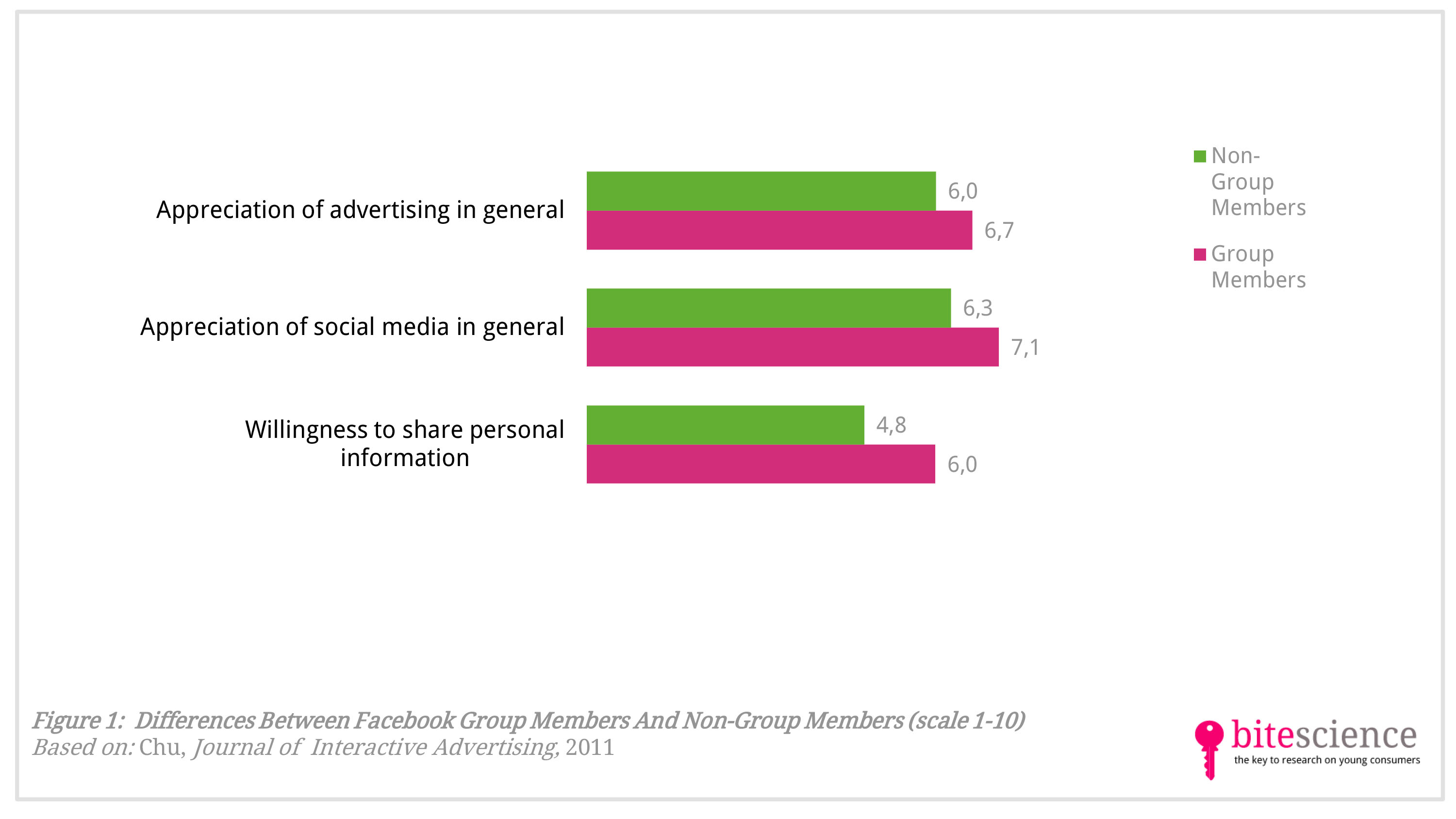
Using Facebook Groups as a Marketing Tool: Success or Flop?
Facebook groups are increasingly used by companies to boost their viral campaigns. However, a study in the Journal of Interactive Advertising suggests that these efforts are not as successful as most advertisers would hope. Members of brand-related Facebook groups are no more likely to “buzz” (or forward) online advertising campaigns to their social network as non-members. The study also reveals some differences between members and non-members of Facebook groups related to their willingness to share personal information on Facebook and their attitudes toward social media and advertising.
Take aways
- Brand-related Facebook groups are not successful in boosting viral campaigns: group members are no more likely to “buzz” (or forward) viral campaigns than nonmembers
- To increase Facebook group members’ buzzing behavior, marketers should:
- target their online campaigns to those members who already have positive opinions about advertising on social media (they are more likely to forward advertising messages)
- appeal to group members’ desire for social status
- To increase pass-on behavior, marketers should send personalized messages which are easy for users to pass on
Study information
The question?
Are members of a brand-related Facebook group more inclined to forward viral advertising campaigns to their social network than non-members?
Who?
302 undergraduate students (mean age: 20,4; 63,2% female; 36,8% male; predominantly white)
Where?
United States
How?
Students had to fill out an online questionnaire including questions about their willingness to share personal information on Facebook, their attitudes toward social media and advertising, and their general intention to forward viral advertising campaigns. They also had to indicate whether they were a member of a brand-related Facebook group and why they became a member. Students were recruited to participate in the research via the “snowball method”: students with a Facebook account were asked to forward the questionnaire to their college friends on Facebook.
Facts and findings
- Members of a brand-related Facebook group were not more inclined to forward viral advertising campaigns to their social network than non-members
- Facebook group members only intended to forward online advertising campaigns if:
- they held a positive opinion about advertising on social media and advertising in general
- they joined the Facebook group because they felt it would increase their social status
- Non-members of Facebook Groups only intended to forward online advertising campaigns if:
- they were willing to share personal information online
- they held a positive opinion about advertising on social media
- Other differences between members and non-members of brand-related Facebook group:
- members were more likely to share personal information on Facebook than non-members
- members were more positive about social media than non-members
- members were more positive about advertising in general than non-members
- However, members and non-members of Facebook groups did not differ on their liking of advertising on social media
- 66% of the students were members of brand- or product-related Facebook groups
- Overall, Facebook users hold positive attitudes toward advertising via social media. On a scale of 1 (very negative) to 10 (very positive), they gave an average score of 8,6
